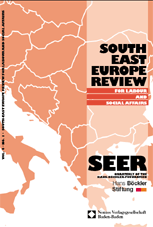Industrial disputes in Hungary
Industrial disputes in Hungary
Author(s): Szilvia BorbélySubject(s): Economy
Published by: Nomos Verlag
Keywords: strikes in Hungary; Viktor Orbán; Hungarian Trade Unions;
Summary/Abstract: The changes in the social dialogue in Hungary since the beginning of the nineties have been influenced by factors such as, among others, the new political pluralism and the transition to a market economy. The decision of the ruling party in the Spring of 1989 to ‘introduce’ political pluralism and the Law on Associations (II. Law, 1989) paved the way for the establishment of approximately 50 parties and proto-parties, and 80 similar bodies, as well as such interest representation organisations as professional bodies, employers’ associations, social groups, youth organisations, cultural circles, etc. The transition to the market economy – that is, liberalisation, deregulation and privatisation – urged a new style of social dialogue. The attempts at peaceful transition stimulated a tripartite solution of social reconciliation, as well as the elaboration and implementation of the tools and mechanisms of social concertation at the macro, mezzo and micro-levels. The article describes the process during the 1990ies of the emergence of new trade unions and new strategies of social dialogue and industrial dispoute in Hungary.
Journal: SEER - South-East Europe Review for Labour and Social Affairs
- Issue Year: 2001
- Issue No: 01
- Page Range: 51-71
- Page Count: 21
- Language: English

